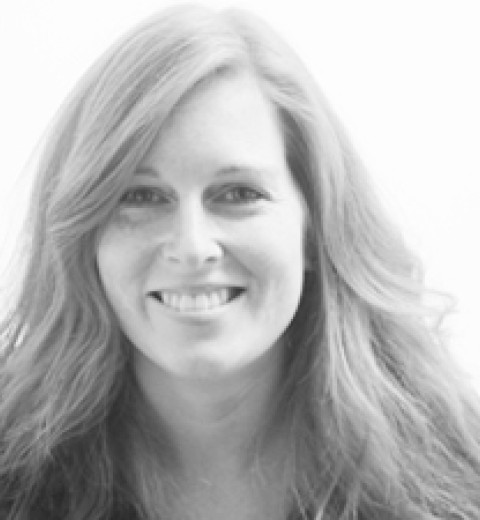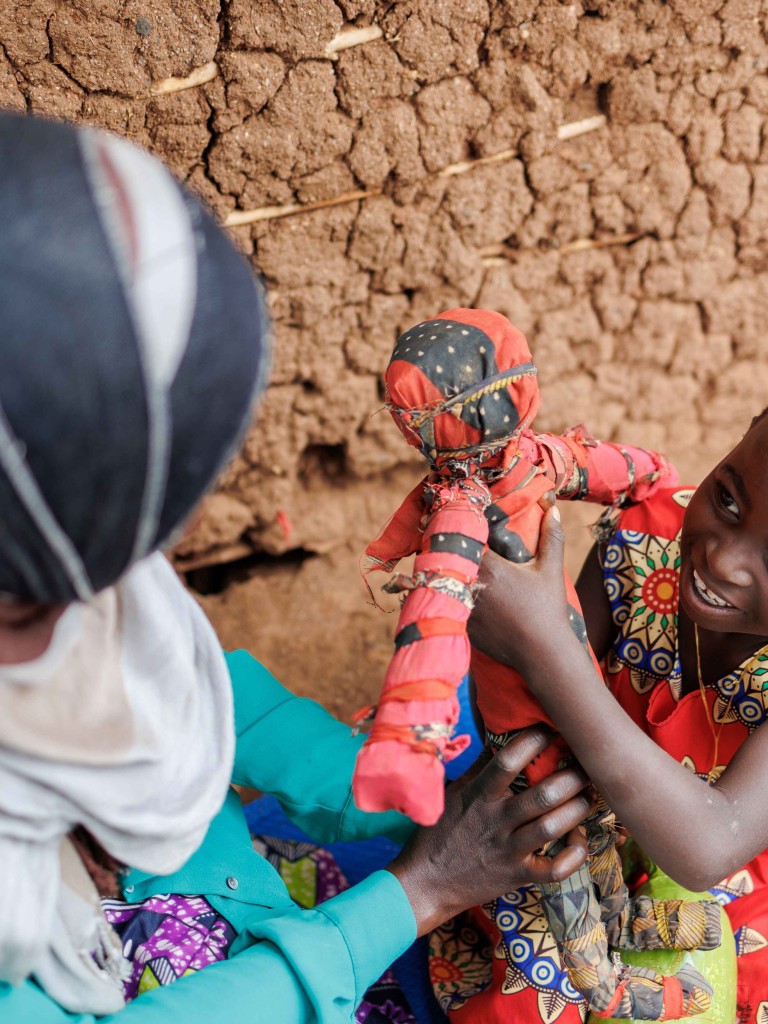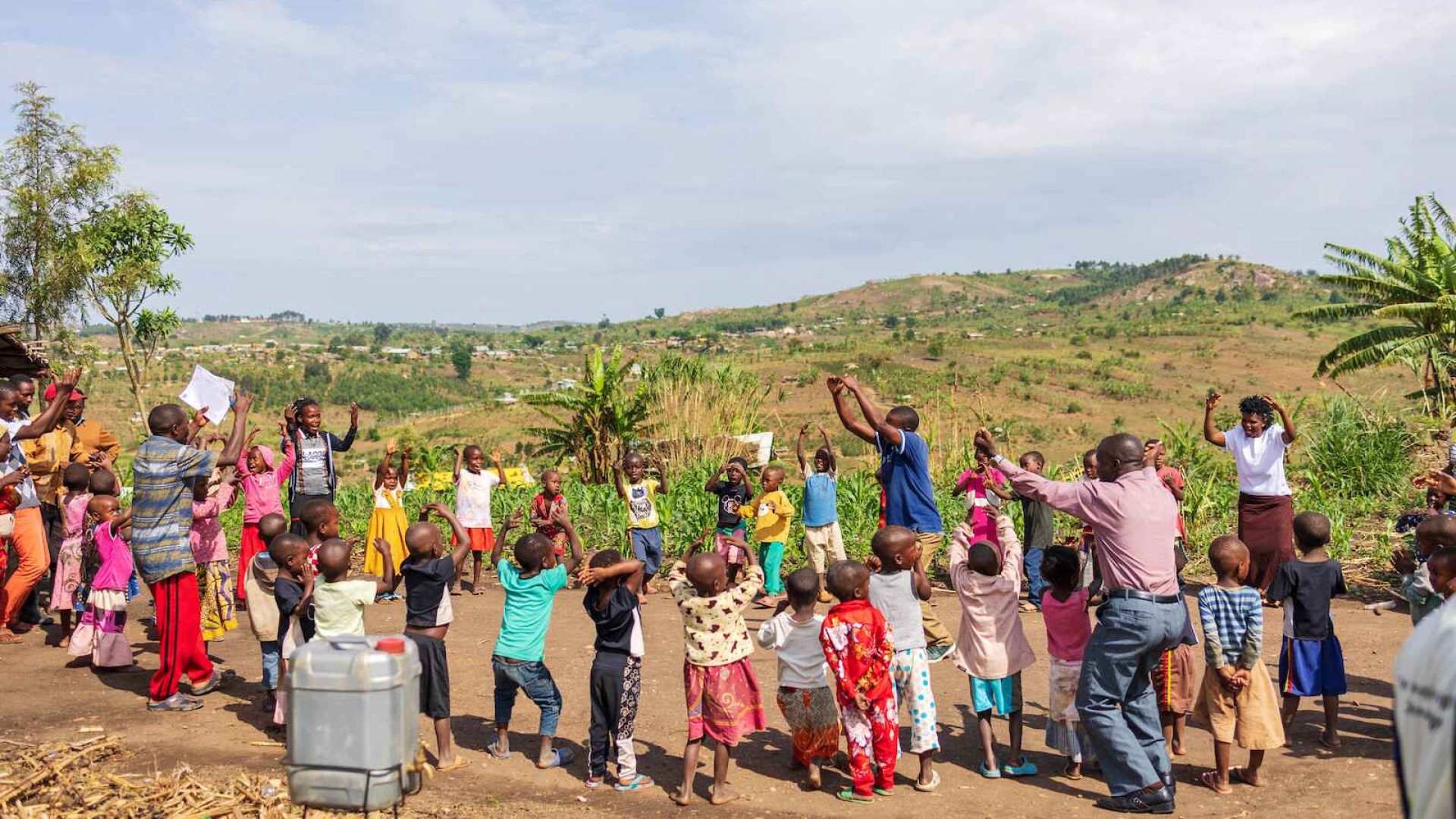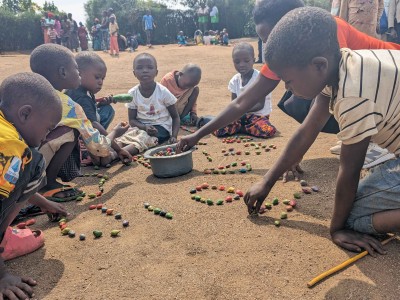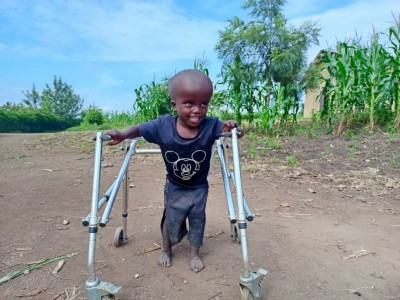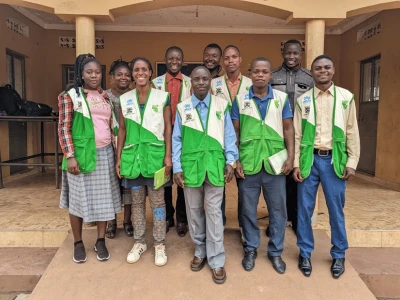"
The quality of these learners is different. They are very active and interested in learning compared to previous years. The Cluster Learning Approach coupled with teacher training is a ‘game changer’.
"
HOW IT BEGAN
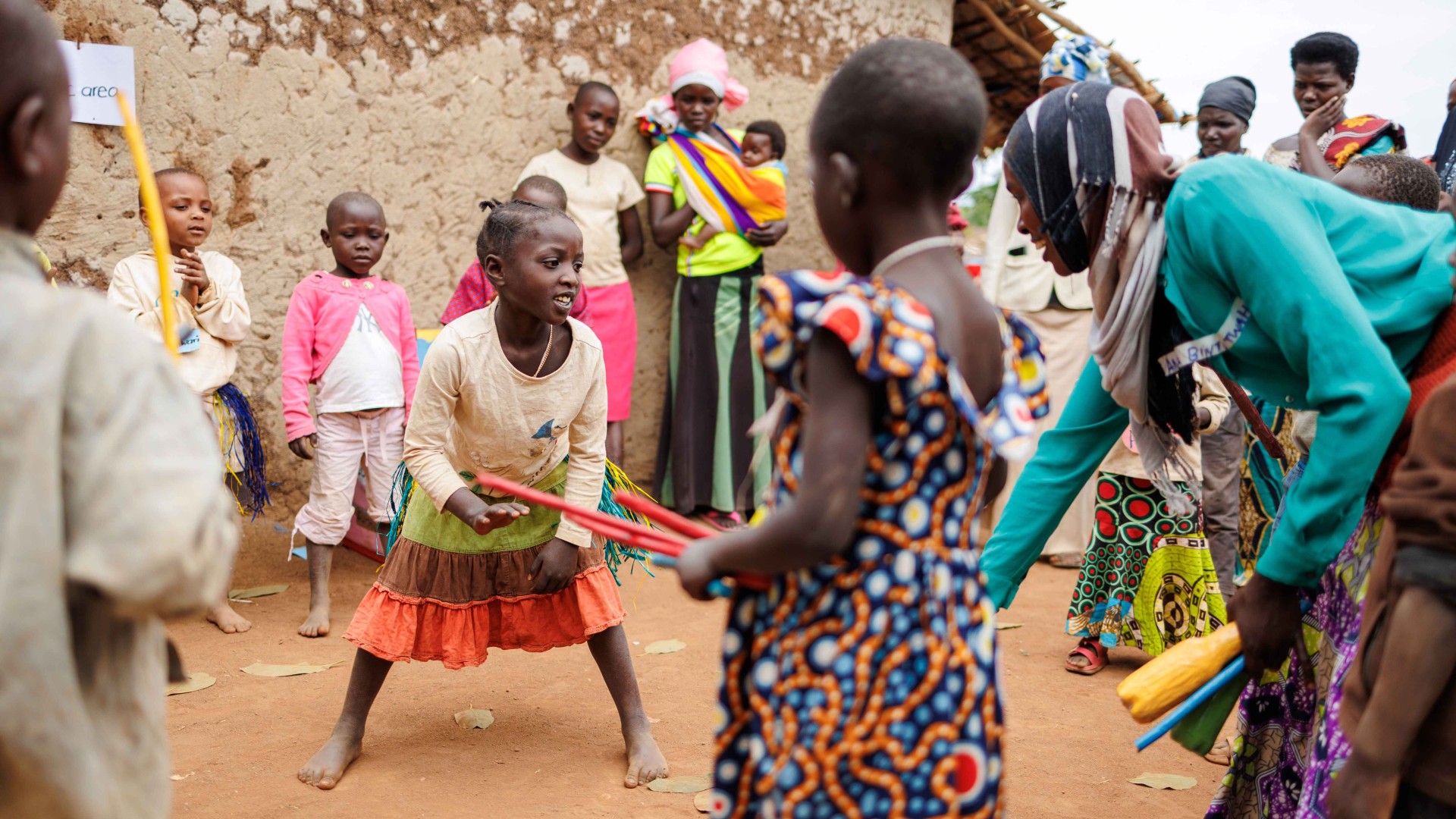
HOW IT WORKS: FIVE CLUSTER COMPONENTS
1. TRUE COMMUNITY OWNERSHIP
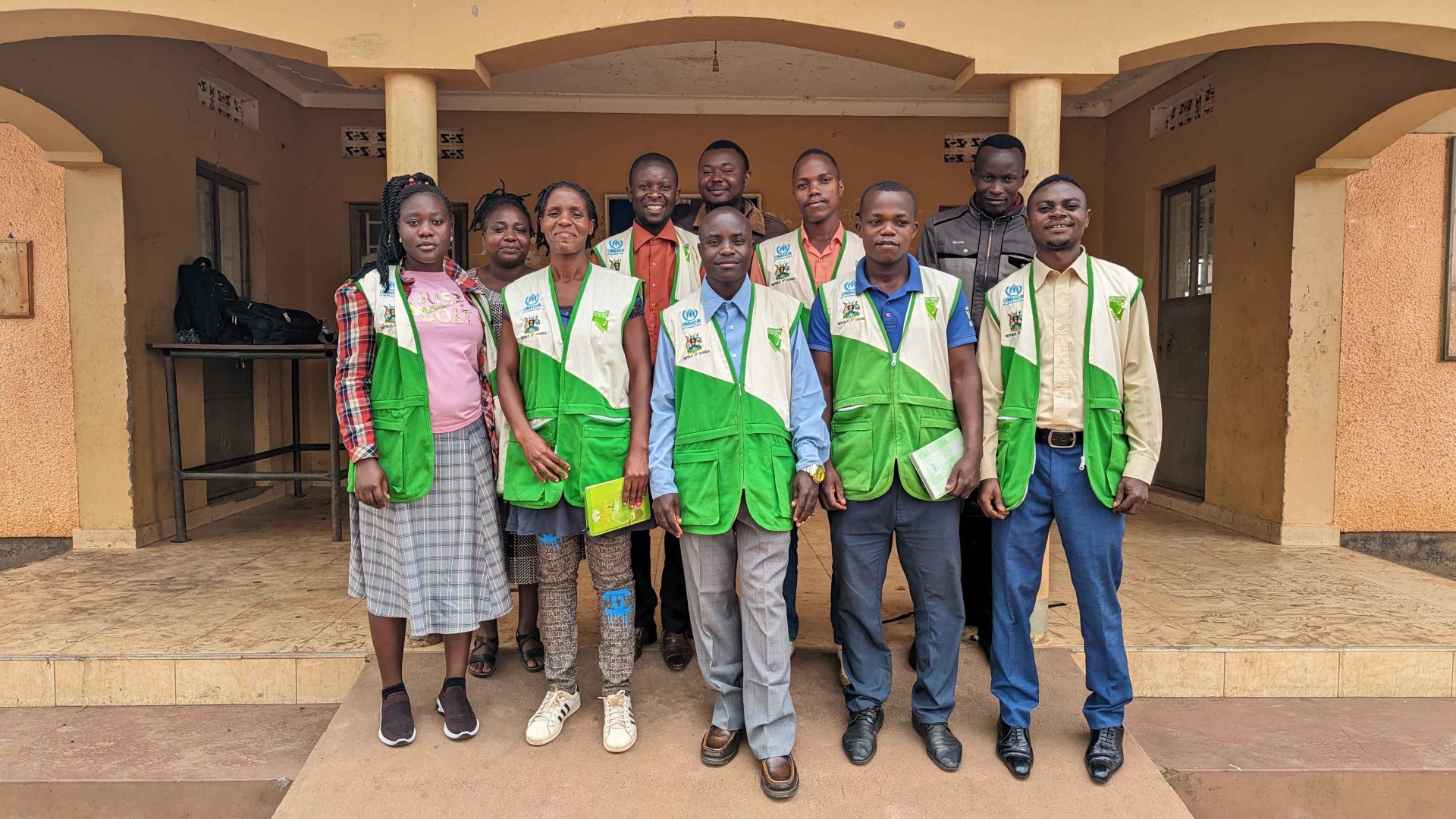
2. ACCESS FOR ALL
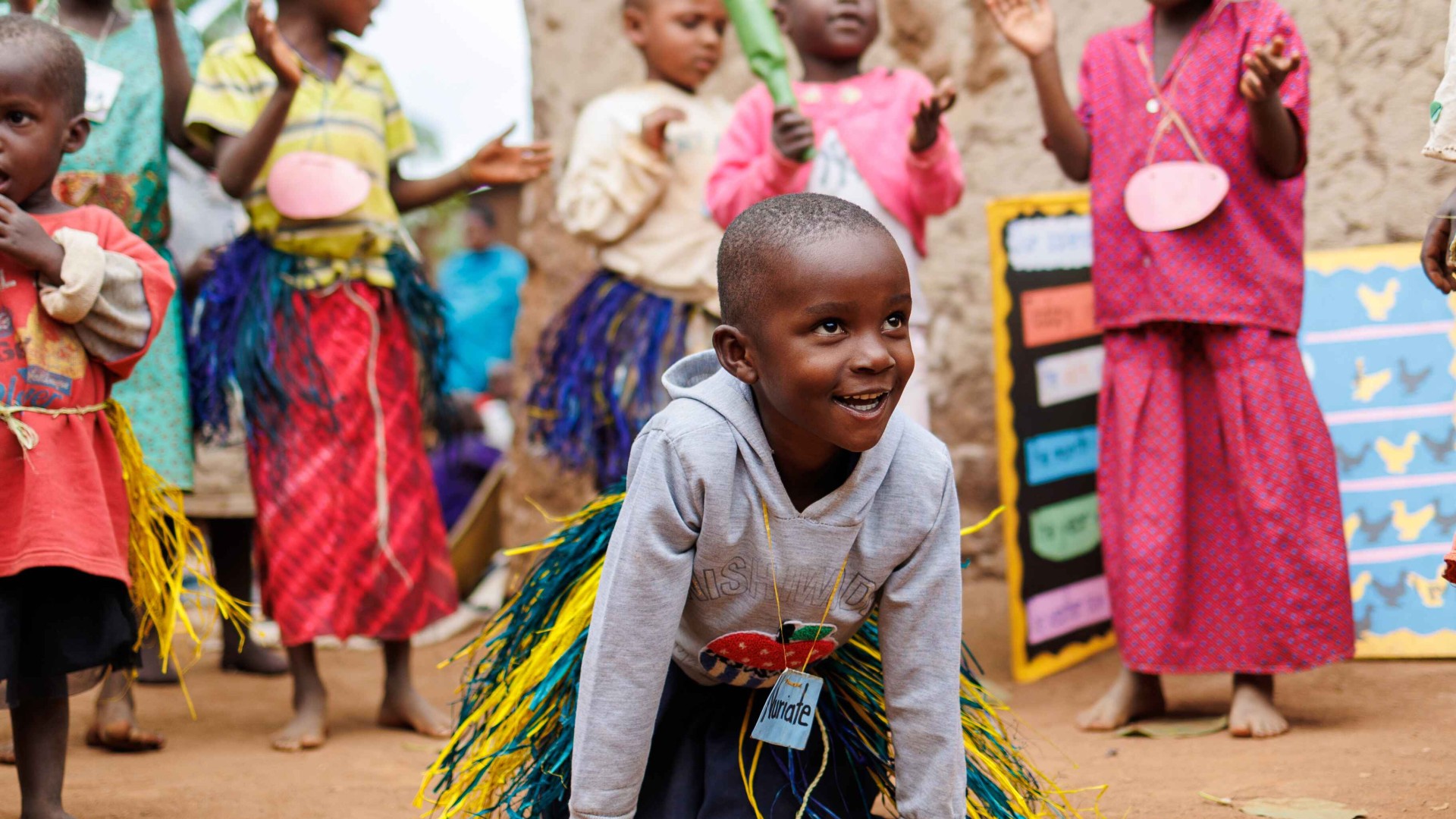
3. PLAY-BASED, CHILD CENTRED LEARNING
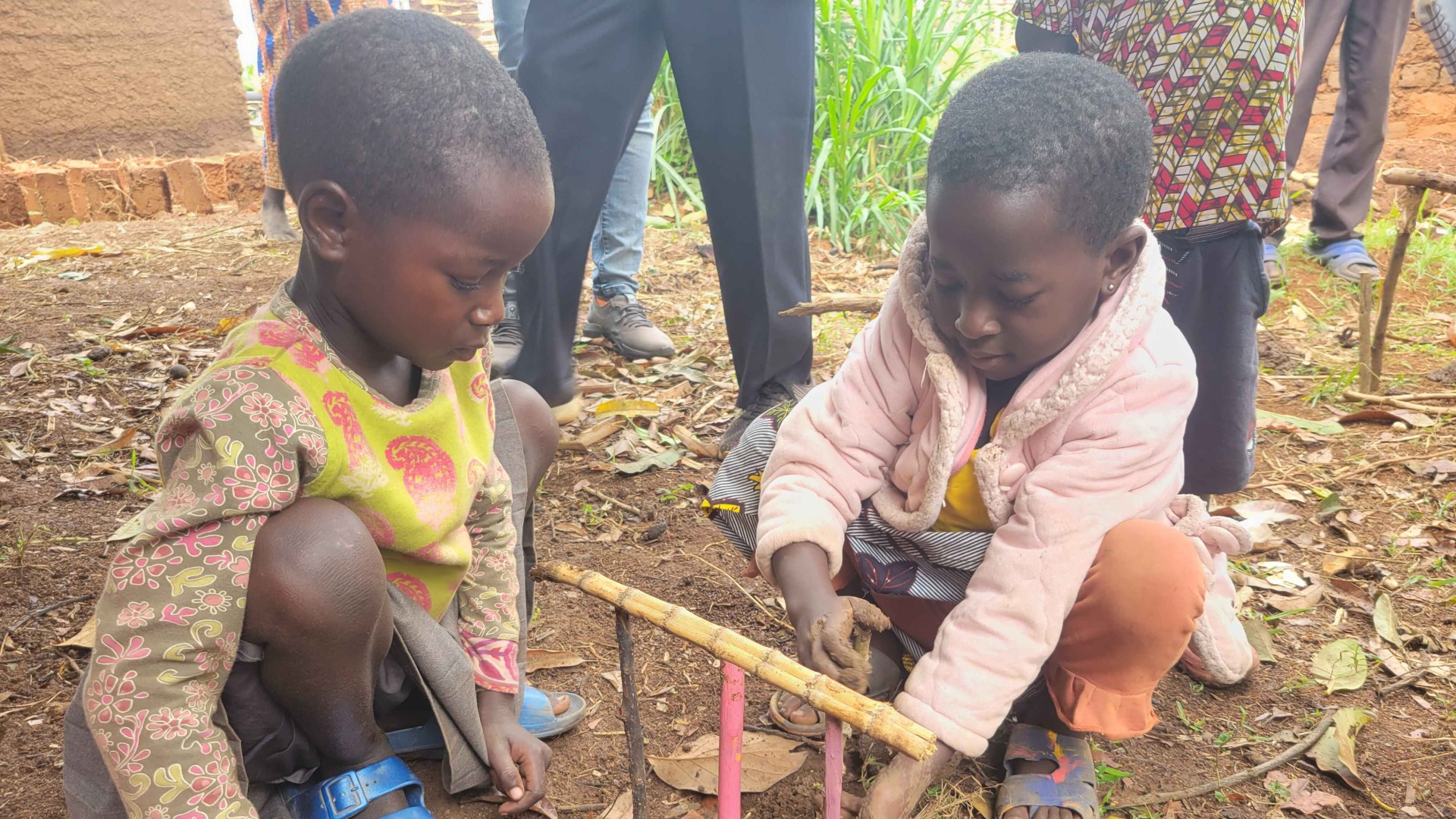
4. PARENT ENGAGEMENT
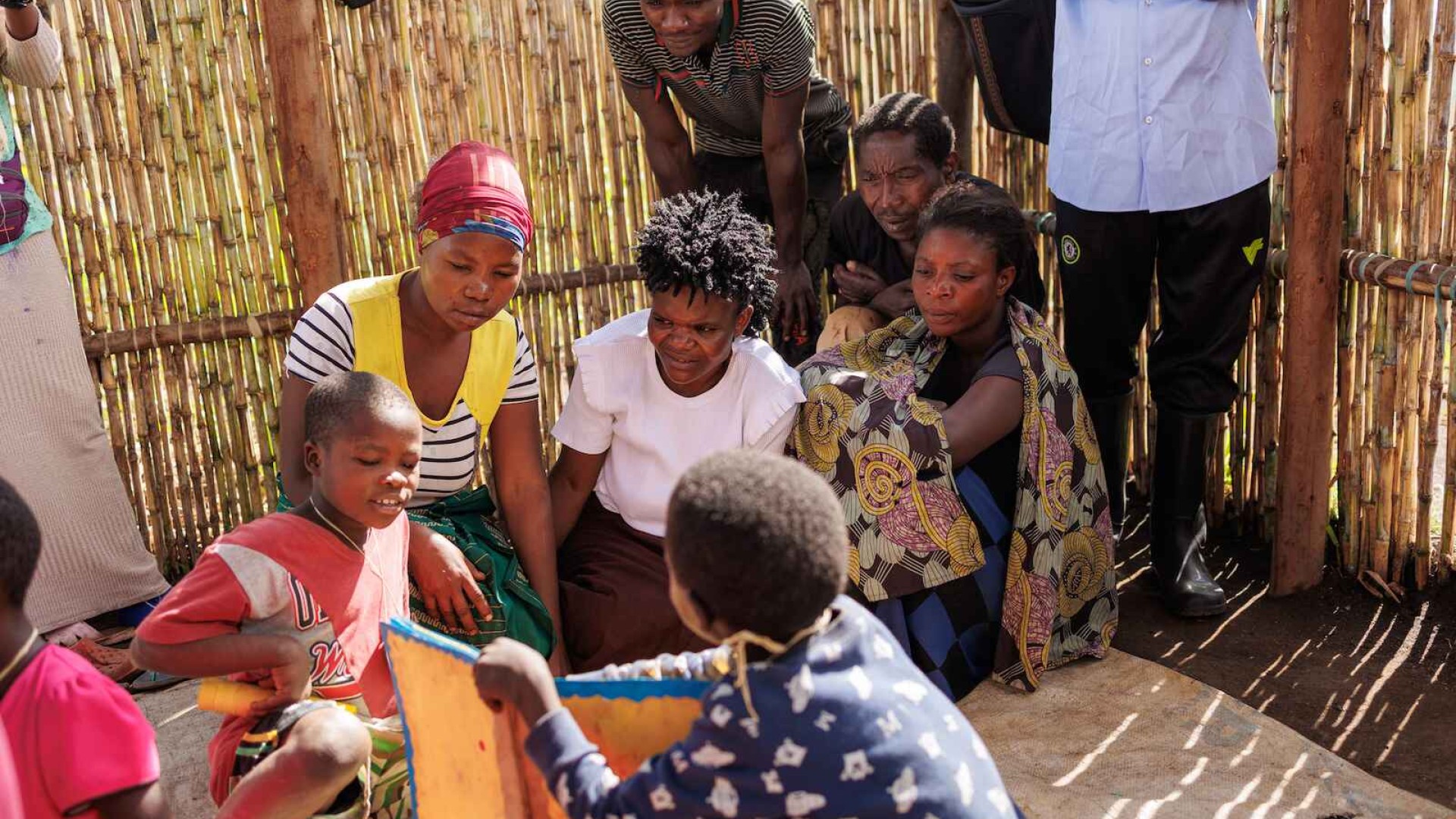
5. UNIQUE TEACHER TRAINING
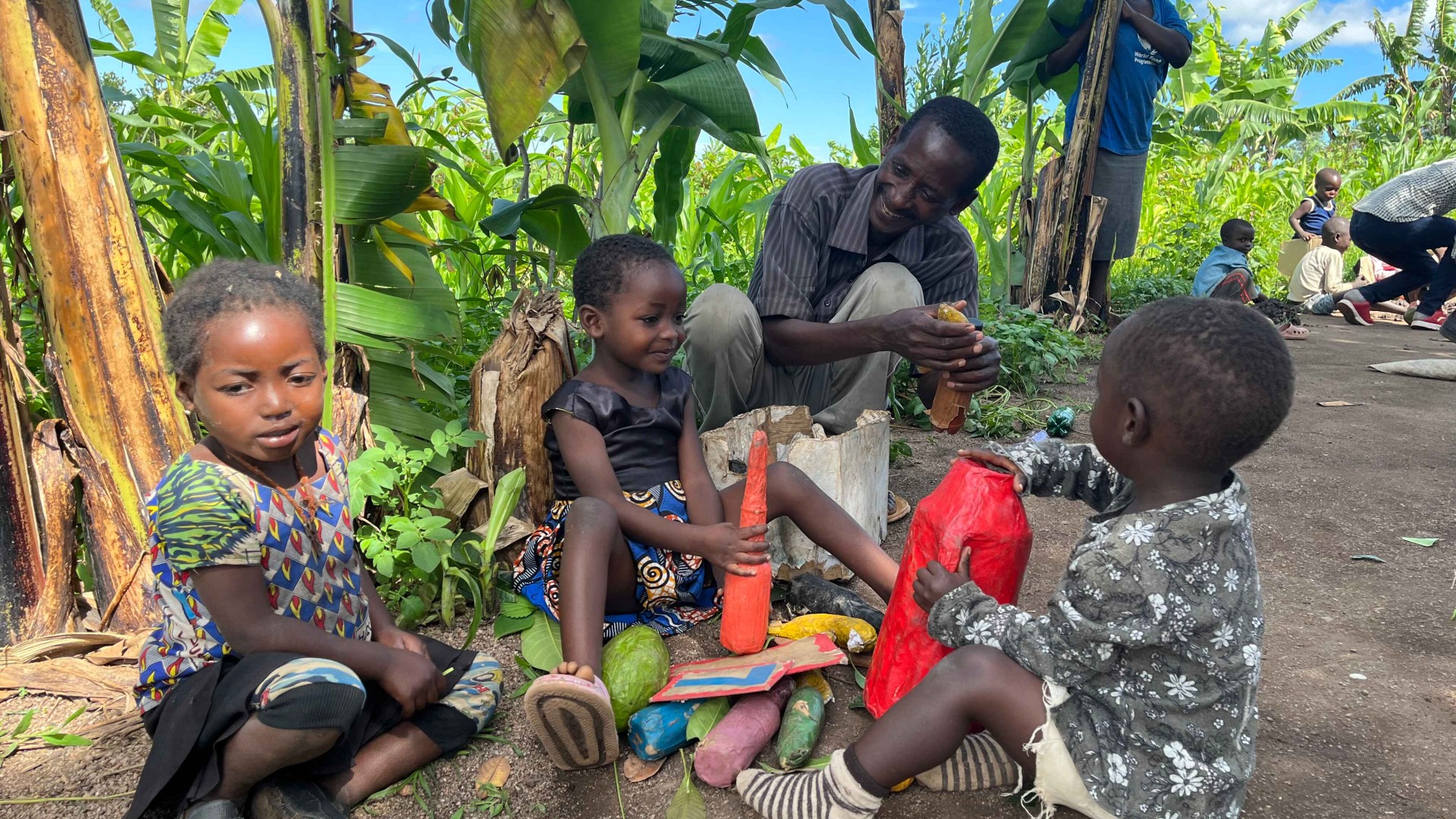
"
There is no other avenue of early years learning in our area. My hope is that they will be able to transition to primary school and excel there. I also hope cluster learning will expand and reach the different corners in our community
"
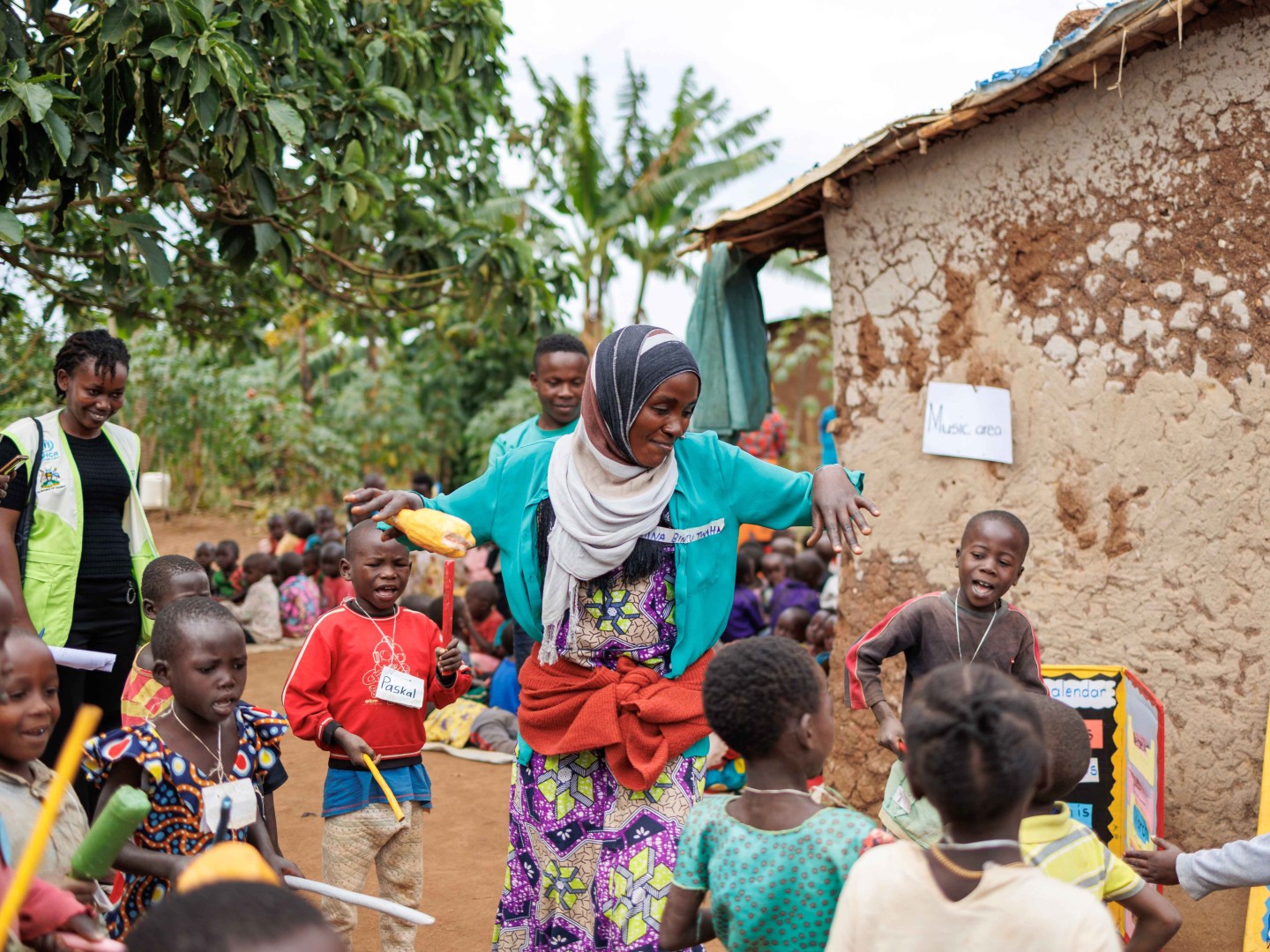
Cluster teacher Amin Bintu Twaha
"
You can clearly tell the difference between those that attended this early learning and those that didn’t.
"
Ninsiima Evelyne - primary teacher, Kyaka II refugee settlement
THE IMPACT
